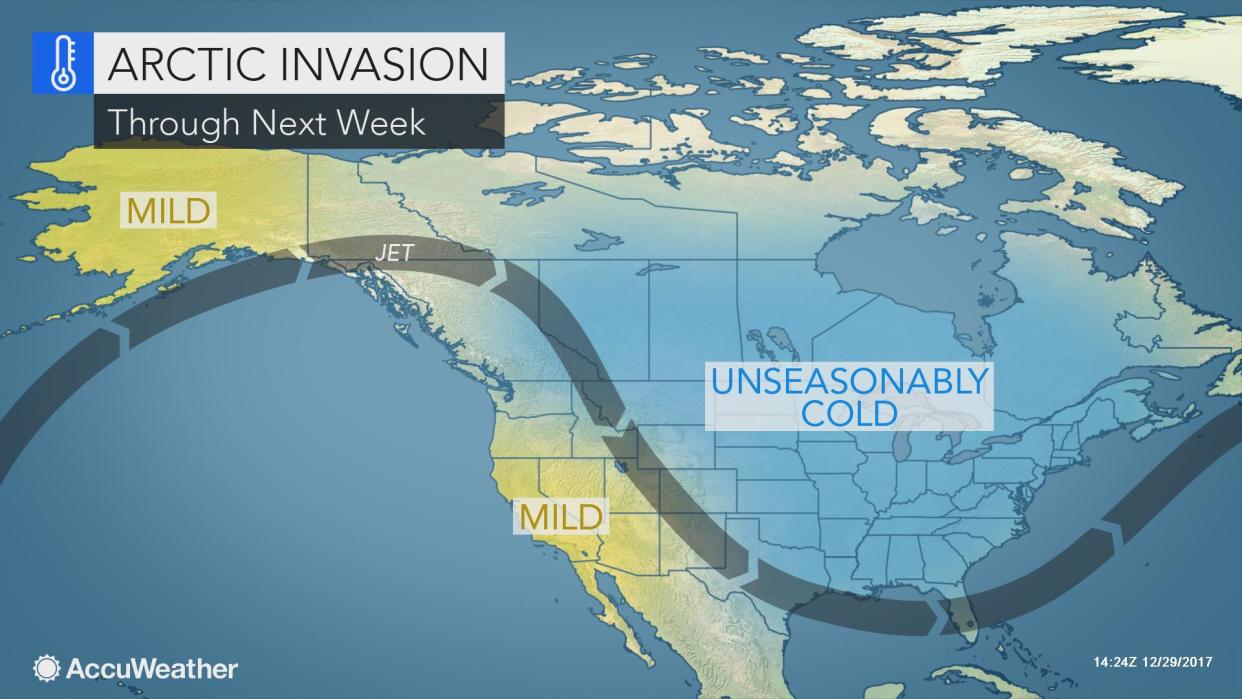Canada's extreme cold temperatures will extend into 2018

As we move into the new year, it looks like the cold temperatures are going to be coming with us.
According to Brett Anderson, senior meteorologist with AccuWeather, 80 per cent of Canada will experience temperatures significantly below normal over the next one to two weeks.
“On average, we’re probably looking at temperature anywhere from 6 C to 12 C below normal, which is pretty significant for the next ten days or so, on average,” Anderson said.
This widespread cold air mass concentrated across the eastern two thirds of North America, going all the way down to Texas and Florida, is the coldest relative to normal in the northern hemisphere, with Europe seeing near to above normal temperatures this winter.
“The coldest air relative to normal is going to be centered right across much of North America over the next one to two weeks,” Anderson said. “This large area of cold air is pretty rare, you don’t see them too often.”
The coldest regions in Canada in particular are also quite widespread. Anderson says the areas where it will be the coldest relative to normal are through the southern prairies across to Ontario, and through to Quebec.
Temperatures are expected to be so cold some New Year’s Eve celebrations on Parliament Hill have been cancelled due to extreme cold weather.
“In Ottawa, probably looking at around midnight, temperature about -25 C or so, there will be a little bit of wind so it could conceivably feel like -30 C,” Anderson said. “It’s going to be pretty nasty out there, no doubt about it.”
The only two areas of Canada that will see near or above normal temperatures in the next week are the Yukon and Newfoundland, but Anderson does say there is a chance of storms in some parts of the Maritimes and possibly eastern Quebec.
“There’s a chance during the first week of January that we may see a cold storm impacting the Maritime provinces with snow,” Anderson said. “Very early now, it’s hard to say, but there’s certainly the potential for a snow storm at some point during the first week of January in New Brunswick, Nova Scotia and Prince Edward Island.”
Although much of British Columbia and Vancouver itself has experienced stormy weather with significant snowfall and even freezing rain in southern B.C., it looks like there will be a bit of a dry patch over the next week or so.
“By tomorrow that storm drops down into the northern U.S. rockies and it looks like a sustained period of dry weather for that region through at least the end of next week, so that’s some good news there,” Anderson said.
AccuWeather’s senior meteorologist also recommends people think about running humidifiers in their homes during this stretch of cold weather.
“The relative humidity in houses is going to be extremely low so a lot of static electricity… when the house gets really, really dry, cold viruses can blossom,” Anderson said.
According to Environment Canada, most of Canada is currently experiencing temperatures of at least -20 C, approaching – 30 C. The government department also has active extreme cold warnings stretching from southern B.C. to southern Quebec.


